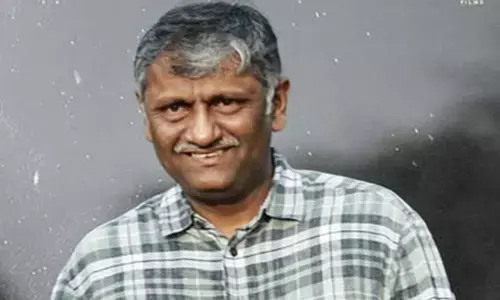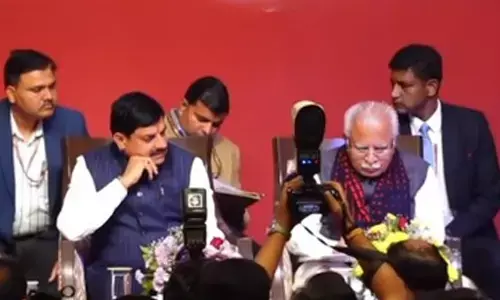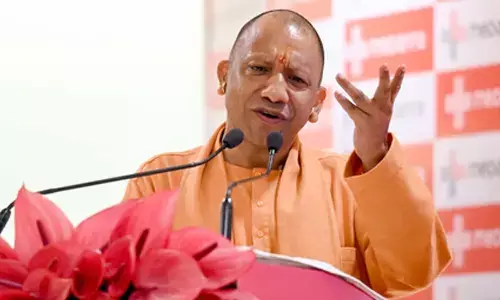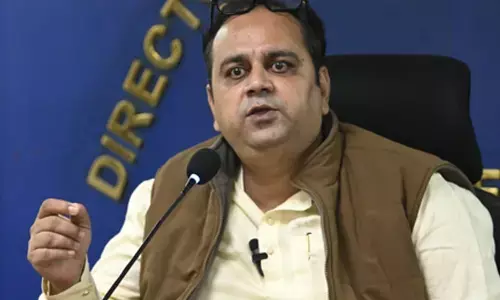Jaitley's clout in Modi durbar

Arun Jaitley\'s Clout in Narendra Modi Durbar. That the defence portfolio will be taken away from Arun Jaitley was a given. The lawyer-politician, who will turn 62 next month, had himself said in as many words that it was an additional charge he was holding, which would be assigned to someone else at the first given opportunity.
That the defence portfolio will be taken away from Arun Jaitley was a given. The lawyer-politician, who will turn 62 next month, had himself said in as many words that it was an additional charge he was holding, which would be assigned to someone else at the first given opportunity.
But the allocation of information and broadcasting ministry in the latest cabinet reshuffle -- in addition to his existing portfolios of finance and corporate affairs -- is signal enough as to who remains the most trusted man in Prime Minister Narendra Modi's council of ministers.
.jpg)
Jaitley may figure at the third place in the actual pecking order, as listed in communiqué from Rashtrapati Bhavan on portfolio allocation of the 65 members, excluding Modi himself. He figures after Home Minister Rajnath Singh and External Affairs Minister Sushma Swaraj, in that order.
Yet, there are several reasons why this former president of the Delhi University Students Union has emerged more powerful than some of his peers. The finance portfolio in itself is a formidable one, since it is at the core of any of the programmes of the government that require fiscal allocations.
But, in addition, in Modi's scheme of things, a well-oiled information and broadcasting ministry is key to ensuring that the idea of "good governance" reaches the people at large, in the manner and through the medium he wants it. Perception, many a time, matters more than the reality on the ground.
In more ways than one, the information and broadcasting minister is also often the one who interacts with the media the most and is additionally seen as the political public face of not just the cabinet, but also the government.
No prime minister, who has some hold over his flock, entrusts this crucial ministry to a person whom he is not comfortable with. If Jaitley is assigned this additional task, it cannot be without reason.
Incidentally, this well-connected senior counsel in the Supreme Court has the right credentials to hold the information and broadcasting portfolio, having served in it as a minister of state with independent charge in 1999-2000. He has been his party's spokesperson as well.
Politically, too, it has certainly helped that Jaitley represents Gujarat, the prime minister's home state, in the Rajya Sabha. This apart, in a way, his loss to former Punjab chief minister Amarinder Singh in the latest national elections by a margin of over 100,000 votes may have actually proved to be a boon for him.
What has also evoked much curiosity about the information and broadcasting portfolio being assigned to Jaitley is that his predecessor Prakash Javadekar was perceived as the right choice. After all, in the run-up to the elections, he was among the public faces of the Bharatiya Janata Party (BJP) as one of its key spokespersons.
Clearly, Modi has a different take on this.
But Jaitley has the new, additional role cut out for him, and it is not going to be easy. For one, he will continue to oversee the corporate affairs ministry. In handling this portfolio, he has no deputy to bank upon.
This is unlike the two other portfolios, finance and information and broadcasting, for which he has two ministers of state to share his burden -- the IIT-Harvard alumni and investment strategist Jayant Sinha and ace Olympian shooter Rajyavardhan Singh Rathore.
Prior to the reshuffle, Nirmala Sitharaman, the minister of state with independent charge of commerce and industry ministry, was also a deputy to Jaitley in the corporate affairs and finance ministries. But these two additional charges have been taken away from her.
This makes the corporate affairs portfolio that much more difficult to handle.
In the past couple of years, this ministry has also become weightier as the nodal administrator of the recast Companies Act, 2013, and the Competition Act, 2002, apart from overseeing the Serious Fraud Office and the Competition Commission.
In addition, this ministry also has a supervisory role over three professional bodies seen as watchdogs of corporate laws -- those of chartered accountants, cost accountants and company secretaries, all constituted under three separate acts of parliament.
Besides, the primary portfolio of finance will be in sharp focus till the national budget is presented end-February, the exercise for which has already started. Going by the past, budget making demands a substantial time of a finance minister's time on a daily basis.
Then, there are some legislative matters, some crucial ones as well, which Jaitley has to oversee and, more importantly, also secure the support from the opposition parties in getting them passed in parliament.
One has already seen how the previous United Progressive Alliance (UPA) found it next to impossible in getting opposition support, as also from states, on some crucial bills concerning the goods and services tax, direct tax code, insurance, pension, money laundering and competition.
Then there are these watchful eyes of domestic and overseas investors, rating agencies, the markets at large and other stakeholders who play a major role in ascertaining the overall mood on the state of the economy and how well reforms are moving ahead.
Given his health condition, which made him seek a 10-minute break while presenting the national budget in July and then sent him to a hospital and recuperation for nearly three weeks in September and October, Jaitley will have to do more than just allocate time judiciously among offices he holds.
















